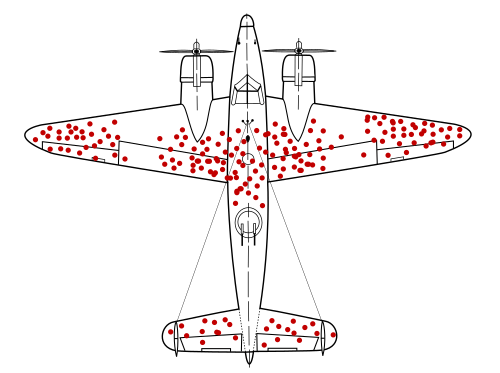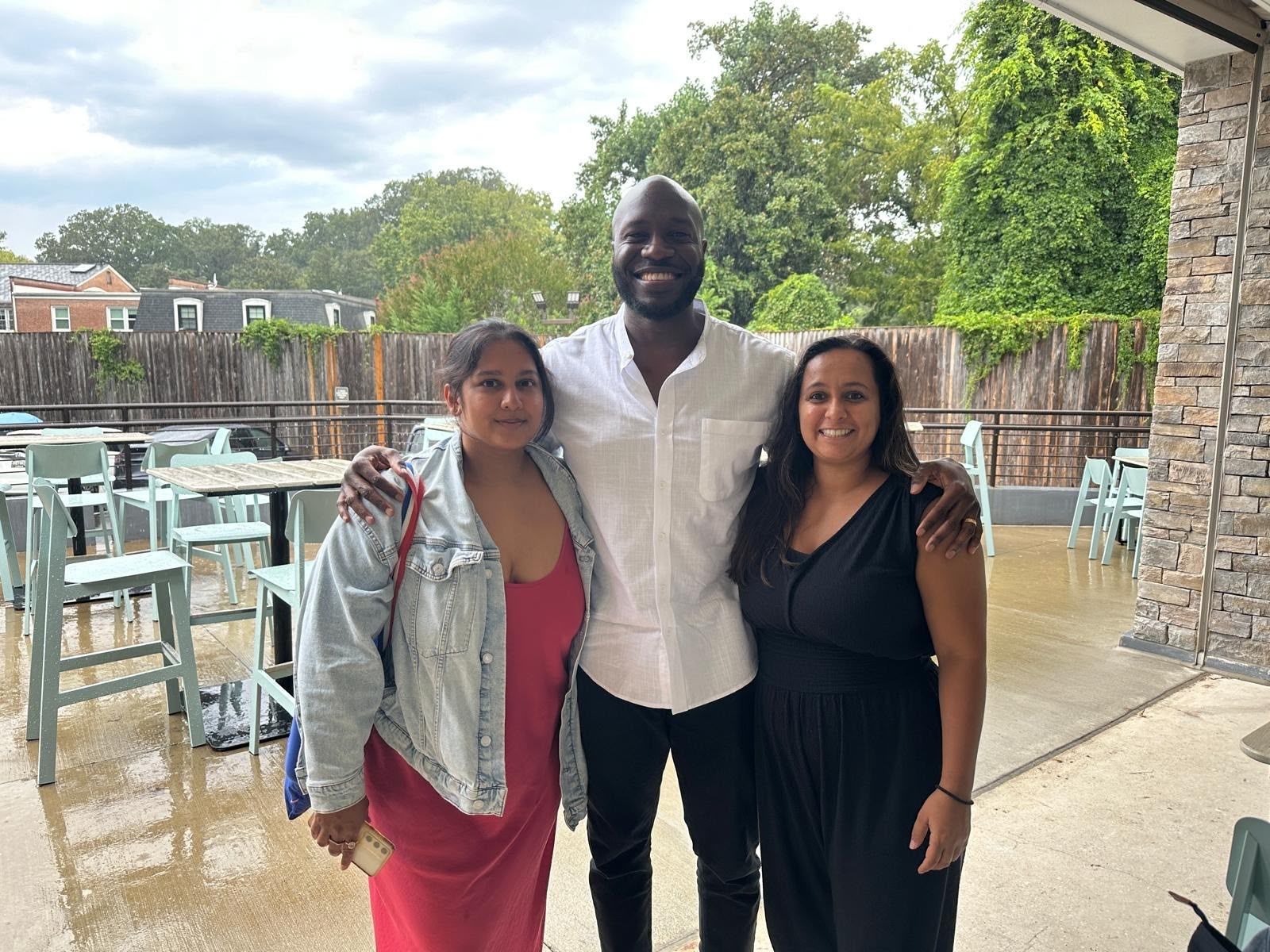- The Friday Fix
- Posts
- #139. Surviving class
#139. Surviving class
Hi! Welcome to The Friday Fix! You’re reading this because you probably stumbled upon this post somewhere on the internet instead of where it should be—in your inbox. But no worries; we can fix that.
Who am I? I’m Shem Opolot, a health professional turned content creator, passionate about helping people be their best selves in life and work.
Why should you subscribe?
I have over ten years of work experience in healthcare, program management, and data analytics on two continents. So, I know a little about helping you work smarter
I comb through tonnes of self-improvement content so you don’t have to, and I distill the content into bite-sized wisdom for you
I’ll occasionally make you laugh
If this sounds good, click the subscribe button below, add your email, read my welcome email (check your spam folder or “Promotion” tabs), and follow ALL the instructions. This is important so you don’t miss future posts.

Hi! I'm Shem Opolot, and this is The Friday Fix, my weekly newsletter. If you've received it, you’re either subscribed or someone forwarded it to you. If you fit into the latter (yes, I’m the kind of person who uses words like “latter”) camp and want to subscribe, then click on the shiny button below:
You can also skim the past posts here.
Otherwise, grab a seat 🪑.

HAPPY FRIDAY 🎉 Today, join me in celebrating the World and Olympic champion pole vaulter, Mondo Duplantis. Duplantis has quickly become my favorite athlete of all time.
You see, Duplantis broke the world record in the pole vault for the 14th time this week, but that’s not the fun part. Every time Duplantis breaks the world record, he earns $100K. That’s not the fun part, either. In his heart of hearts, Duplantis knows the peak height he can reach, but instead of jumping that height at once and getting only $100K, he microdoses the feat.
So, the past 14 times, Duplantis has broken his world record by 1 cm each time, earning $1.4m. And after breaking the world record in the Track and Field World Championships in Tokyo this week and becoming $100K richer, I bet that Duplantis will break the record again at the next major tournament. By 1 cm. How can you not respect that?

LIFE.
Surviving class.

Source: Wikipedia
“When I make it, I’ll stop talking to you guys.”
“There will be signs…”
***
During World War 2, military analysts examined returning aircraft for damages, looking to make reinforcements. After noticing the aircraft sustained major damage to the tails and wings, the analysts recommended adding armor to those areas before deploying the next fleet. But a statistician named Abraham Wald warned that this decision ignored all the aircraft that didn’t return. Instead, Wald recommended that the extra armor be added to the less damaged parts, like the engine and the cockpit, which were more crucial for keeping the aircraft in the air.
The military analysts weren’t idiots. They simply succumbed to survivorship bias.
My love for statistics and cognitive psychology makes me fascinated by cognitive biases.
But I hate survivorship bias.
Mostly because it’s personal, prevalent in society at a pandemic level, and paradoxical.
Survivorship bias leads us to focus on the few outstanding success stories we hear and ignore the many failures. It’s paradoxical because it leads us to make false conclusions about our chances of success while also being essential for motivating us. For example, survivorship bias is the reason you think you’ll be a millionaire someday. It’s why every musician thinks they’ll make it big. Why every startup founder thinks they’ll build a unicorn. But the truth is you most likely won’t become a millionaire, that musician probably won’t make it big, and that startup will almost certainly keep using a Gmail address forever. But…belief in these delusions of grandeur is essential for, well, making it.
Now do you see why I hate survivorship bias?
Let’s talk about surviving instead.
***
This week I started a consulting gig where, among other things, I interview formerly incarcerated people on behalf of an organization that helps these people reintegrate into society by connecting them to the social services and opportunities they need. The organization hopes to use my findings to improve their services and advocate for these people better.
During my orientation, I got a lecture on the history of the prison industrial complex in America—a reality that is quite heavy. Perhaps too heavy for this moment.
So let’s skirt it for now.
While I was receiving my lecture, a congressional House meeting played in the background. The lady, my lecturer, while arriving at her point via several back roads, insisted she needed to keep one ear on it in case she heard fighting words.
Because of my big mouth, our conversation somehow steered into the territory of the importance of community and stories. I told my lecturer, humbly, that I saw correlations between the fragmentation of rich and poor Black Americans, rich and poor Africans, and rich Africans in the diaspora versus the less affluent Africans on the continent.
We agreed that the rich often lump their fear of poverty together with the poor people living in it. Because of that fear, they try to distance themselves—in space and ideology—from poor people.
And I get it.
But the heel of racism unites all the Blacks in America, just like the heel of dysfunction and mediocrity unites all Africans on the Continent.
And solving those issues requires class solidarity.
This unity is fantastical, though, because capitalism is a powerful, seductive force. Once you taste its comfort and convenience, capitalism fools you into thinking you’re immune to society’s ills. I’m not immune to this myself, as I’ve successfully failed to protest Target or Amazon, despite their many crimes against humanity. Microsoft consistently gags or fires employees who speak up against Israel’s genocide in Gaza, but most of us use Windows. The alternatives aren’t any better. I’m also guilty of joking that Amazon Prime’s two-day shipping should be the very last domino to fall when capitalism collapses, because—what a concept!
Anyway.
Capitalism infiltrates democracy as people vote, not based on their current reality, but on where they think they belong—often against their own self-interest. So low- and middle-class people align with billionaires at the ballot, hoping they’ll be billionaires someday. Peak survivorship bias, this.
Instead, the solution is to hate poverty, not poor people. We must focus on the systems that create it and unite across classes to dismantle those systems.
So…when you make it, when you’re fortunate enough to wheel and deal your way out of the daily treadmill of running from poverty, when you survive—use your newfound station to send a ladder down, not build a fence.

THINGS.
A quote.
Three decisions determine 90% of your life outcomes: who you're with, what you do, and where you live.
A slightly long read.
I generally don’t recommend nonfiction because I can’t remember the last piece of it I read from start to finish. I often read nonfiction like I read the Bible—a specific excerpt for a specific purpose. Also, I often think most nonfiction is longer than it needs to be. All of that said, read this.
A picture.
I went to Duke, and that fact even got me a Schengen visa once, but I’m most grateful for the friends I made there. These two friends of mine created tech that’s a game-changer for women’s health. You’ll read about them soon as their star rises, but remember you heard about Happy and Denali here first. And above all, remember that they are my friends.


WORK.
Free Perplexity Pro for a year
The main product players in the generative AI space are, in no particular order, ChatGPT, Gemini, Claude, Grok, and Perplexity. If you have a PayPal account or can create one, you can get free access to Perplexity Pro for a year. Run, don’t walk, but don’t forget to cancel the subscription 😅.

FUN.
The Friday Fix playlist
Shem’s picks
✅ Life cheat codes courtesy of Reddit
✅ How good brand marketing changes your brain
✅ 50 years of travel lessons condensed into one post
✅ A couple of short stories about the one who got away
✅ A townhouse made out of 18 shipping containers
Have a great weekend,
— Shem


Reply